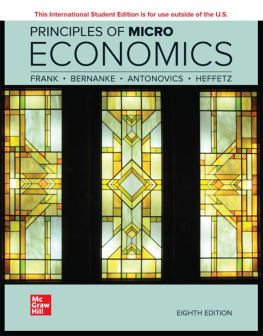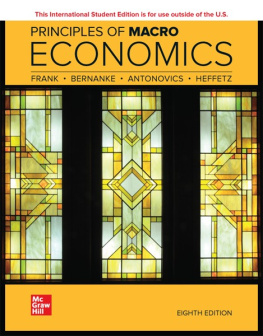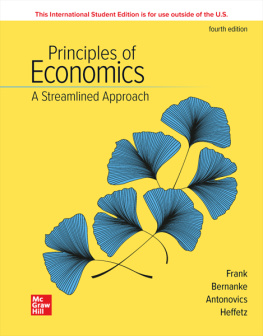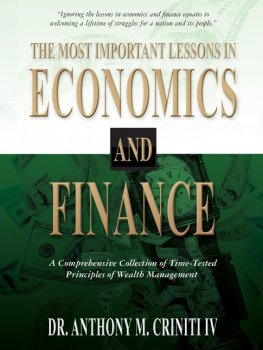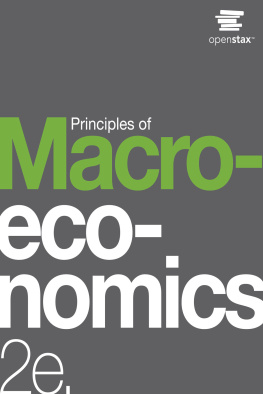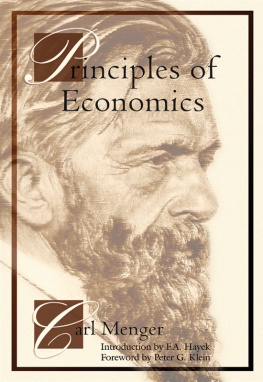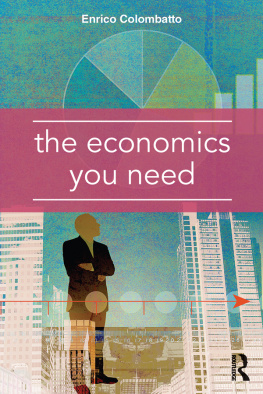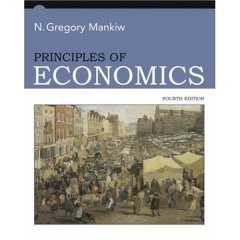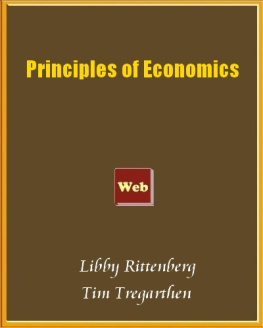
Principles of
MICRO
ECONOMICS
Eighth Edition
ROBERT H. FRANK
Cornell University
BEN S. BERNANKE
Brookings Institution [affiliated]
Former Chair, Board of Governors of the Federal Reserve System
KATE ANTONOVICS
University of California, San Diego
ORI HEFFETZ
Cornell University and the Hebrew University of Jerusalem

Page i

Page ii
PRINCIPLES OF MICROECONOMICS
Published by McGraw Hill LLC, 1325 Avenue of the Americas, New York, NY 10121. Copyright 2022 by McGraw Hill LLC. All rights reserved. Printed in the United States of America. No part of this publication may be reproduced or distributed in any form or by any means, or stored in a database or retrieval system, without the prior written consent of McGraw Hill LLC, including, but not limited to, in any network or other electronic storage or transmission, or broadcast for distance learning.
Some ancillaries, including electronic and print components, may not be available to customers outside the United States.
This book is printed on acid-free paper.
1 2 3 4 5 6 7 8 9 LWI 24 23 22 21 20
ISBN 978-1-264-36476-3
MHID 1-264-36476-8
Cover Image: Shutterstock/photoff
All credits appearing on page or at the end of the book are considered to be an extension of the copyright page.
The Internet addresses listed in the text were accurate at the time of publication. The inclusion of a website does not indicate an endorsement by the authors or McGraw Hill LLC, and McGraw Hill LLC does not guarantee the accuracy of the information presented at these sites.
mheducation.com/highered
DEDICATION
Page iii
For Ellen
R. H. F.
For Anna
B. S. B.
For Fiona and Henry
K. A.
For Katrina, Eleanor, Daniel, and Amalia
O. H.
About the Authors
ROBERT H. FRANK
Page iv

Courtesy of Robert H. Frank
Robert H. Frank is the H. J. Louis Professor of Management and Professor of Economics, emeritus, at Cornells Johnson School of Management, where he taught from 1972 to 2020. After receiving his B.S. from Georgia Tech in 1966, he taught math and science for two years as a Peace Corps Volunteer in rural Nepal. He received his M.A. in statistics in 1971 and his Ph.D. in economics in 1972 from The University of California at Berkeley. He also holds honorary doctorate degrees from the University of St. Gallen and Dalhousie University. During leaves of absence from Cornell, he has served as chief economist for the Civil Aeronautics Board (19781980), a Fellow at the Center for Advanced Study in the Behavioral Sciences (19921993), Professor of American Civilization at lEcole des Hautes Etudes en Sciences Sociales in Paris (20002001), and the Peter and Charlotte Schoenfeld Visiting Faculty Fellow at the NYU Stern School of Business in 20082009. His papers have appeared in the American Economic Review, Econometrica , the Journal of Political Economy , and other leading professional journals, and for more than two decades, his economics columns appeared regularly in The New York Times .
Professor Frank is the author of a best-selling intermediate economics textbook Microeconomics and Behavior , Tenth Edition (McGraw Hill, 2021). His research has focused on rivalry and cooperation in economic and social behavior. His books on these themes include Choosing the Right Pond (Oxford, 1985), Passions Within Reason (W. W. Norton, 1988), What Price the Moral High Ground? (Princeton, 2004), Falling Behind (University of California Press, 2007), The Economic Naturalist (Basic Books, 2007), The Economic Naturalists Field Guide (Basic Books, 2009), The Darwin Economy (Princeton, 2011), Success and Luck (Princeton, 2016), and Under the Influence (Princeton, 2020), which have been translated into 24 languages. The Winner-Take-All Society (The Free Press, 1995), co-authored with Philip Cook, received a Critics Choice Award, was named a Notable Book of the Year by The New York Times , and was included in BusinessWeeks list of the 10 best books of 1995. Luxury Fever (The Free Press, 1999) was named to the Knight-Ridder Best Books list for 1999.
Professor Frank is a co-recipient of the 2004 Leontief Prize for Advancing the Frontiers of Economic Thought. He was awarded the Johnson Schools Stephen Russell Distinguished Teaching Award in 2004, 2010, 2012, and 2018, and the Schools Apple Distinguished Teaching Award in 2005. His introductory microeconomics course has graduated more than 7,000 enthusiastic economic naturalists over the years.
BEN S. BERNANKE
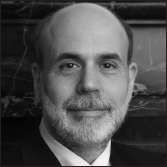
Courtesy of Ben S. Bernanke
Professor Bernanke received his B.A. in economics from Harvard University in 1975 and his Ph.D. in economics from MIT in 1979. He taught at the Stanford Graduate School of Business from 1979 to 1985 and moved to Princeton University in 1985, where he was named the Howard Harrison and Gabrielle Snyder Beck Professor of Economics and Public Affairs and where he served as chair of the Economics Department. Professor Bernanke is currently a Distinguished Fellow in Residence with the Economic Studies Program at the Brookings Institution.
Professor Bernanke was sworn in on February 1, 2006, as chair and a member of the Board of Governors of the Federal Reserve System; his second term expired January 31, 2014. Professor Bernanke also served as chair of the Federal Open Market Committee, the Feds principal monetary policymaking body. Professor Bernanke was also chair of the Presidents Council of Economic Advisers from June 2005 to January 2006.
Professor Bernankes intermediate textbook, with Andrew Abel and Dean Croushore, Macroeconomics , Ninth Edition (Addison-Wesley, 2017), is a best seller in its field. He has authored numerous scholarly publications in macroeconomics, macroeconomic history, and finance. He has done significant research on the causes of the Great Depression, the role of financial markets and institutions in the business cycle, and measurement of the effects of monetary policy on the economy.
Professor Bernanke has held a Guggenheim Fellowship and a Sloan Fellowship, and he is a Fellow of the Econometric Society and of the American Academy of Arts and Sciences. He served as the director of the Monetary Economics Program of the National Bureau of Economic Research (NBER) and as a member of the NBERs Business Cycle Dating Committee. From 2001 to 2004 he served as editor of the American Economic Review , and as president of the American Economic Association in 2019. Professor Bernankes work with civic and professional groups includes having served two terms as a member of the Montgomery Township (New Jersey) Board of Education.
Page v
Page vi
KATE ANTONOVICS

Courtesy of Kate Antonovics
Professor Antonovics received her B.A. from Brown University in 1993 and her Ph.D. in economics from the University of Wisconsin in 2000. Shortly thereafter, she joined the faculty in the Economics Department at the University of California, San Diego. Professor Antonovics is also currently serving as the Provost of UC San Diegos Seventh College.
Next page
